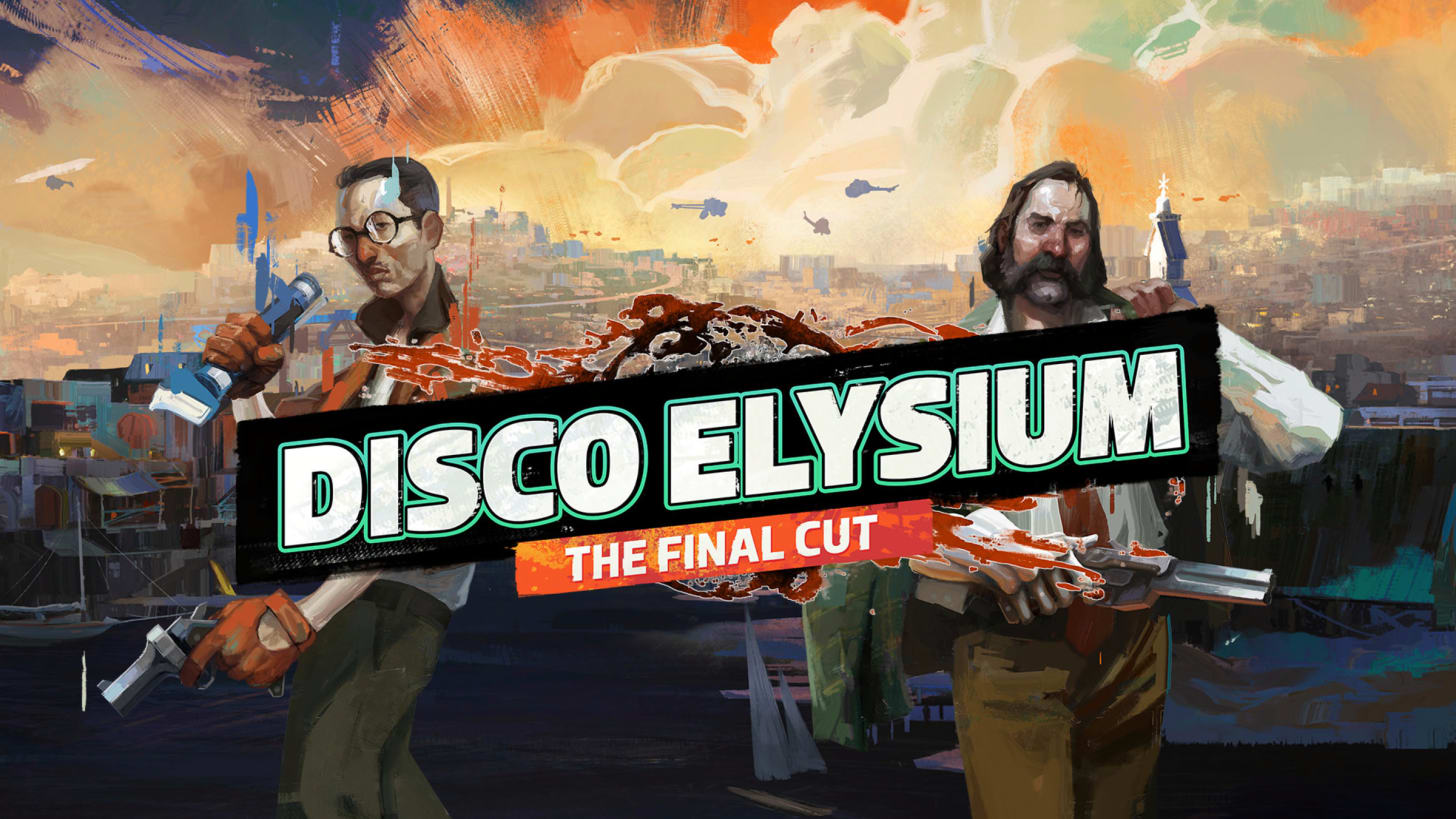The UnPopulist Family's Holiday Recommendations
They are not all light fare, but they are with an eye toward securing a brighter, liberal future
Berny Belvedere
I am, proudly, an omnidirectional consumer of content—not just books, magazines, and publications, but also music, films, TV, podcasts, video games, traditional art, all of it. So when I heard about the holiday recommendation roundup we were planning here at The UnPopulist, my first instinct was to go off-book—literally! I planned to skip books and offer up something from one of the non-standard media art forms—for example, from 2023, Apple TV’s Silo, a brilliant adaptation of the dystopian sci-fi book series by Hugh Howey whose depiction of an authoritarian community-state is distinctly apocalyptic, and Nintendo’s sprawlingly beautiful The Legend of Zelda: Tears of the Kingdom, an aesthetic continuation of possibly the greatest video game of modern times, 2017’s Breath of the Wild, were standouts for me. But in the end, I went with a book. And I did so because it perfectly encapsulates the why behind my recent decision to join The UnPopulist. Let me explain.
Anne Applebaum’s Twilight of Democracy, a book-length expansion of her standout Atlantic essay from 2018, captures both the despair brought on by our collective witnessing of reinvigorated forms of authoritarianism making inroads around the world in recent years and the dread inherent to the possibility that things on this front will only get worse. Applebaum’s book focuses on the intellectuals and information-dispensers responsible for making the ground fertile for authoritarianism to take root. Applebaum dubs them “clercs”—these are thinkers, academics, journalists, writers, commentators, podcasters, meme-makers whose creative output serves to erode the ongoing viability of liberal values. “[S]ome of them write sophisticated books,” she says, and “others launch viral conspiracy theories.”
I am recommending Applebaum’s book because it correctly discerns a key structural precondition for illiberalism: the widespread presence of intellectual products that serve to fortify, rather than attenuate, anti-liberal sensibilities in society. This, ultimately, is how authoritarianism is able to get its foot in the door. But I am also recommending Applebaum’s book because it perfectly depicts the precise antithesis of who I strive to be professionally. I’ve recently joined The UnPopulist because beating back the intellectual currents propping up authoritarianism around the world is deeply important to me; it’s what I want to focus on as a political thinker. Applebaum’s quest, in the end, is my quest, and it’s The UnPopulist’s quest.
Andy Craig
My recommendation this holiday season is For All Mankind, an alternate history drama for Apple TV helmed by showrunner Ronald D. Moore, best known for his previous work on Battlestar Galactica and Star Trek.
Without spoiling too much, the premise of the show starts from the Soviets beating the United States to land a man on the moon. The result is that the Space Race continues rather than sputtering out as it did in real life. For space program nerds, this offers a lot of (mostly) smart depictions of spacecraft and programs that never left the drawing board. But even for those not particularly interested in the technical arcana of spaceflight, the alternate version of the late 20th and early 21st centuries is fascinating and filled with compelling characters.
Now in Season 4, each season jumps about a decade into the future, from the 1970s to the 1980s to the 1990s to the 2000s. From the continuation of the space program on a much larger scale, consequences are traced out that affect the course of American politics and society, the economy, and global geopolitics. In some cases this fictional version of events strains credulity or takes a ridiculous turn. It also veers a bit too close into Aaron Sorkin territory in its triumphalist liberalism at times. But for the most part, it’s a reasonably plausible depiction and fun to think about.
For All Mankind also offers a departure from the common, overdone tropes of the alternate history genre, namely the Civil War and World War II. And it does an impressive job of interweaving its fictional characters with real-life figures such as Wernher von Braun and Ronald Reagan. It is far from flawless, but very much worth checking out and one of the better new series in recent years.
Shikha Dalmia
If there is one thinker who can help us make sense of our senseless political moment when a populist demagogue with a ridiculous bouffant spewing a blood-and-soil nationalism is once again a whisker away from the White House, it is Hannah Arendt, the German-Jewish philosopher who fled Germany during World War II and took refuge in the United States. And that’s why, at the risk of being too heavy, this holiday season, I would recommend a documentary about her life and thought, Vita Activa: The Spirit of Hannah Arendt.
This documentary by renowned Israeli producer and writer, Ada Ushpiz, in two short hours manages to not just capture Arendt’s core philosophical insights but also the gruesome political events—World War I, World War II, the Holocaust— that shaped this diminutive woman’s thinking. Pleasurable viewing it is not, although it does have its lighter moments like when a voice-over narrates the love letters between Arendt and her brilliant philosophy professor Martin Heidegger in which he refers to her “girlish essence.” He meant it as a compliment! Heidegger was a notorious Nazi sympathizer who believed that the nation-state was the source of all spiritual meaning and therefore it needed to be maintained in pristine form free of alien influences. Arendt’s affair with him has always been the source of much gossip—and consternation—some of which the documentary depicts.
But if Heidegger is the biggest intellectual villain of the 20th century, Arendt is arguably the most important thinker from the standpoint of understanding that century. She is best known for coining the term “banality of evil” to describe the Nazi functionaries who worked behind the scenes to keep the concentration camps populated and the gas chambers humming. Arendt came up with this phrase when she traveled to Jerusalem to cover the trial of Adolf Eichmann, widely regarded as the architect of the Holocaust, for the New Yorker. This was the first time she had seen an actual Nazi in the flesh and instead of finding a Satan-like figure who delighted in his grisly acts (like Hamas on Oct. 7), she saw a slightly hunched over, avuncular nebbish with glasses and balding hair. The documentary has jaw-dropping footage of the trial where Eichmann, whom Israel kidnapped from Argentina to bring to justice, nonchalantly claims that he didn’t consign millions of Jews to their death because he was a Jew-hating, anti-Semite but because he was following orders and he believed in the Fuhrer’s higher cause. He was doing the right thing, he felt.
Arendt’s refusal to depict Eichmann with horns and fangs got her into a lot of trouble (as did her subsequent condemnation of Revisionist Zionism after being an ardent Zionist in her youth). Both her detractors and her friends felt that she had lost the plot. To them, her description trivialized the horrors he’d orchestrated, but it was in keeping with her broader analysis of the nature of modern totalitarian movements—both fascism and communism—all of which the documentary explicates through interviews with those who knew her personally or knew her thought. She believed that the horrors these ideologies perpetrated could not be understood as mere extensions of ordinary political evil. They were a different beast altogether from more familiar, traditional autocracies that oppressed subjects for the personal gain or aggrandizement of the ruler. These movements, by contrast, controlled the hearts and minds of people. They obliterated any independent moral reference point to evaluate politics.
All of this is extremely useful in understanding the burst of populist nationalism around the world. But the concept that makes Arendt most relevant—even inspiring—at this moment is the one that the documentary alludes to in its title: Vita Activa. She explicates this idea in her book, The Human Condition, published in 1958 (six years after The Origins of Totalitarianism). In it, she insists that Vita Contemplativa—or the life of the mind—wasn’t the highest good as ancient thinkers like Plato and Aristotle believed; it was, rather, Vita Activa—the life of moral or political action. Such a life required individuals to maintain their inner moral freedom at all times so that they never lost their capacity to think and act independently.
Such an attitude would have prevented the mass psychosis that led to the horrors of the last century. And it could also give us the inner strength to prevent new ones from occurring in this one.
The liberal democratic world could use a little of Hannah Arendt’s spirit right now.
Aaron Ross Powell
This last week, a friend played Disco Elysium for the first time. I have been evangelizing this game since I experienced it a few years ago. And this holiday recommendation essay gives me an opportunity to do so again. There’s a risk that recommending a video game, especially in a journal dedicated to very serious, existential matters of politics, might appear cringey, not giving full attention to the weightiness of the moment.
But hear me out.
Disco Elysium, a role-playing game (RPG) from a group of Estonian developers, is the best work of fiction about ideology in many years. Framed as a hunt for memories by way of a murder mystery, the game is a complex, humane, beautiful, and a breathtakingly intellectual study of the ways ideology gives us a sense of belonging by carving the world into competing epistemic and phenomenological camps. In the process it creates a belonging that is, in truth, isolation. It’s a game ultimately about loneliness and how loneliness can be overcome. Disco Elysium re-casts our most influential political perspectives—communism, neoliberalism, fascism, libertarianism—as ways of constructing identity. But it then interrogates the identities these ideologies construct combining all this with a penetrating interrogation of how obsession, ultimately, is a way of coping with an unsatisfactory world.
The game brings a depth of psychological nuance and insight often missing from most books about our political predicament. It cuts through ideology and obsession and gives us a glimpse into the minds of the very human men and women who embody and suffer from both those things because they are trying, desperately, to make sense of their world. So they seek out answers that not only feel right, but give them a way to categorize and defuse the complexity, messiness, and ambiguity that can make it so hard to know who we are and what we ought to do next. And it accomplishes this not just through staggeringly smart writing, but also through taking advantage of what sets video games apart from novels, film, and other forms of artistic media—namely, the ability to turn the audience into an agent within the narrative. This gives us choice, and that choice makes the consequences of characters’ actions resonate, resound, and sting. Disco Elysium is beautiful and rewarding—and a very fine way to spend some quiet and contemplative time during the holidays.
Akiva Malamet
Since the rest of The UnPopulist team has the politically-themed recommendations well-handled, I thought I’d go in a slightly different direction. Well, in the opposite direction, actually. This holiday season, I’d like to give a shout out to West Virginia University philosophy professor Christopher Freiman’s fantastic short book, Why It’s OK To Ignore Politics. Though I would strongly caution against embracing the book’s fuller prescription—to disengage from politics entirely—there is value in reducing our political engagement when it functions like sports fandom or when it prioritizes activity that isn’t likely to make a difference in the world. Politics tends to make us more tribal and partisan, less trusting of others, and more inclined to use motivated and simplistic reasoning over dispassionate and nuanced analysis. These are undeniably negative things. While our civic responsibilities in these extraordinary times—like opposing authoritarianism, participating in democratic deliberation, and so on—are significant enough to offset some of the unfortunate byproducts of heavy political involvement, it does us no good to ignore the adverse effects politics can have on the people who are heavily involved in it. In many cases, the time we devote to politics could be better spent directly helping those in need. While politics is very important and necessary (especially to those of us at The UnPopulist), we and the world at large might be better served from occasionally taking some steps back from it, focusing on what we can directly affect and the people we can immediately help with the resources we have available to us.
Freiman makes a number of important points that are well worth considering, and he helpfully debunks a lot of the mythology that exists around both the democratic process and politics in general. That doesn’t necessarily mean that those of us involved in politics should give up the fight, and I continue to believe strongly in the efforts to cover the struggle between liberalism and authoritarianism. In particular, Freiman’s discussion of motivated reasoning makes the kind of nuanced and complex coverage we provide on this site all the more imperative. That said, Freiman’s work is an important corrective to the religious devotion that political engagement often entails. Freiman should be especially lauded for encouraging all of us to give more charity and do more volunteering than we otherwise would, and at least occasionally put our holiday dinner table rants to one side.
Thomas Shull
After Russia’s invasion of Ukraine in February of last year, I remember thinking, amid talk of a possible nuclear war, of “September 1, 1939,” the poem by W. H. Auden. Writing of the anger and despair he felt on the first day of World War II, Auden alluded to the “darkened lands of the earth” and the “unmentionable odour of death” that night. But against this, he wrote:
Yet, dotted everywhere
Ironic points of light
Flash out wherever the Just
Exchange their messages.
In the many months that have followed the Russian invasion, we’ve seen such “points of light” in people striving to reduce and record the suffering. Many of these efforts come from major international aid organizations, but what caught my attention were instances of relatively smaller, nontraditional outfits that could have easily chosen not to serve Ukraine, with no questions asked.
Here I will focus on two. One is the World Central Kitchen, started in 2010 when chef José Andrés and his wife Patricia sped to Haiti following an earthquake to cook in quantity for the victims. Their subsequent work focused on relief of poverty and natural disasters, primarily in the Caribbean and Central America, but with Russia’s attack imminent in 2022, they extended their growing network of chefs to Ukraine to provide fresh meals and food kits to war refugees, their efforts reaching even war-torn Kherson and Donetsk. The rapidly expanding group has suffered a recent internal scandal, but its work in Ukraine has proved a singular achievement—one it could have forgone for safer forms of humanitarian aid.
Then there’s Tim Mak, an American journalist who has worked for NPR and written for a variety of U.S. newspapers and magazines. Having covered Ukraine at the outbreak of the war, he recently moved to Kyiv and launched the website The Counteroffensive. Its stories seek to create empathy for Ukraine’s fight by reporting first-hand how individual Ukrainians experience the war’s events.
Listening to Mak being interviewed recently, I saw just how this can work. He was speaking from Kyiv, daily subject to drone and missile attacks, when he observed:
A lot of people are describing the war in Ukraine poorly, I think, by calling it a stalemate. ‘Stalemate’ doesn’t quite capture the ferocity of the fighting that’s happening to keep the lines as they are at [this] particular moment. There are artillery duels happening as we are talking. … They’re expending thousands upon thousands of rounds in order to keep the battle lines where they are right now.
This struck me. Thousands and thousands of rounds to conquer this land, mindlessly annihilating however many people are necessary to achieve that goal. Suddenly, I saw the evil. And I realized that although the Russian invasion had outraged my sense of justice again and again, it had less often—half a world away—outraged my sense of humanity.
As Auden recognized, though, outrage is only part of the story. The points of light are there, too. So here’s a link to The Counteroffensive’s current lead article, which explains the Ukrainian origin of the lovely and ubiquitous Christmas song that we know as “Carol of the Bells” (Hark, hear the bells, sweet silver bells … ). The Ukrainian original, “Bountiful Evening,” narrates a mythical landholder’s blessings. Poignantly, the song was exported to the world by a Ukrainian national chorus on tour in 1919, just before a Russian invasion snuffed out the nascent Ukrainian People’s Republic.
Yet that invasion did not stop—and has not stopped—Ukraine’s touching our common humanity. The Just exchange their messages still.
— Happy Holidays
The UnPopulist Family
© The UnPopulist, 2023
Follow us on Bluesky, Threads, YouTube, TikTok, Facebook, Instagram, and X.
We welcome your reactions and replies. Please adhere to our comments policy.















This is a brilliant post, both intensifying and contextualizing our current fraught moment in time.
I so appreciate the many and varied recommendations.